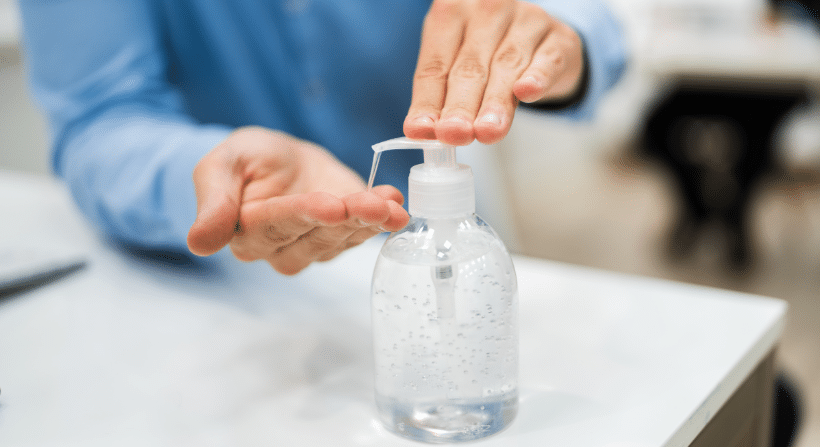Are you grappling with a bed bug infestation and considering rubbing alcohol as a remedy? Before you reach for that bottle, let’s delve into the reality of using rubbing alcohol as a bed bug solution. While it may seem like a convenient and inexpensive option, there are crucial factors to consider before employing this method.

Understanding Rubbing Alcohol’s Mechanism
Applying alcohol, also known as isopropyl alcohol, is a solvent that can effectively kill insects by dissolving their outer cells. Additionally, it acts as a desiccant, drying out bed bug eggs and adults upon contact. This dual action may appear promising in the fight against bed bugs, but there are significant drawbacks to consider.
The Flammability Factor
One of the most notable concerns with using rubbing alcohol for bed bug control is its flammability. Due to its highly volatile nature, spraying applying alcohol poses a significant fire hazard. A single misstep, such as spraying near an open flame or electrical outlet, could lead to disastrous consequences. For this reason alone, pest control experts advise against applying alcohol as a long-term solution.
The Short-Term Solution Conundrum
While rubbing alcohol may provide temporary relief by killing bed bugs on contact, its efficacy is short-lived. Studies have shown that applying alcohol is more of a short-term solution, winning a few battles but ultimately falling short in the war against bed bugs. Additionally, its rapid evaporation means that any residual effects are minimal, leaving surfaces vulnerable to re-infestation.
The Repellent Effect
Another aspect to consider is applying alcohol’s repellent properties. While it may initially deter bed bugs from crawling or laying eggs on treated surfaces, this effect is temporary and limited to the areas directly sprayed. Moreover, the use of applying alcohol as a repellent may inadvertently scatter bed bugs, potentially spreading the infestation further.
A Cautionary Note on Application
It’s essential to clarify that the rubbing alcohol discussed here is not to be confused with drinking alcohol (ethyl alcohol). Misusing applying alcohol as a bed bug solution can lead to unintended consequences, including the spread of infection and potential health hazards.
Expert Guidance and Solutions
In light of the limitations and risks associated with using rubbing alcohol for bed bug control, it’s prudent to seek professional advice and assistance. At Tulsa Bed Bug Specialist, our team of experts is equipped with the knowledge and tools to tackle bed bug infestations effectively and safely. Whether you require inspection, treatment, or preventive measures, we’re here to provide tailored solutions to meet your needs.
Conclusion: Making Informed Decisions in Bed Bug Management
In conclusion, while applying alcohol may offer a quick fix for bed bug infestations, its drawbacks outweigh its benefits. From flammability concerns to short-term efficacy and limited residual effects, there are compelling reasons to approach applying alcohol with caution. Instead of relying on DIY methods, trust the expertise of professionals like Tulsa Bed Bug Specialist to address your bed bug woes effectively and responsibly.
For personalized advice and professional assistance with bed bug control, contact Tulsa Bed Bug Specialist at 918-892-5254 or visit our website at tulsabedbugexterminator.com. Don’t let bed bugs take over—take control of your home with confidence and expertise.
FAQs
Is Rubbing Alcohol Safe to Use Around Flames or Electrical Outlets?
Due to its flammable nature, it’s crucial to avoid using applying alcohol near open flames or electrical outlets to prevent fire hazards.
How Long Does the Effectiveness of Rubbing Alcohol Last Against Bed Bugs?
While applying alcohol may kill bed bugs on contact, its efficacy is short-lived, making it more of a temporary solution rather than a long-term remedy.
Does Rubbing Alcohol Leave Residue After Application?
Rubbing alcohol typically evaporates quickly, leaving behind minimal residue. However, this also means that any residual effects on bed bugs are limited.
Can Rubbing Alcohol Repel Bed Bugs?
While applying alcohol may initially deter bed bugs from crawling or laying eggs on treated surfaces, its repellent effect is temporary and localized to the areas directly sprayed.
Are There Any Health Risks Associated with Using Rubbing Alcohol for Bed Bug Control?
When used improperly, applying alcohol can pose health hazards, including skin irritation and respiratory issues. It’s essential to handle and apply applying alcohol with caution to mitigate potential risks.

Recent Comments